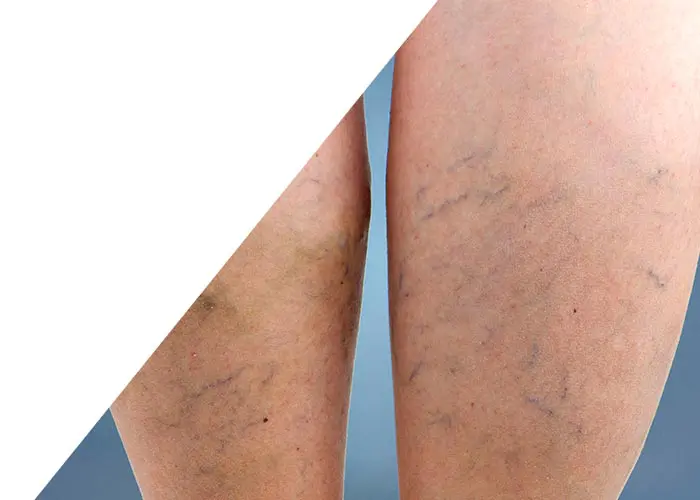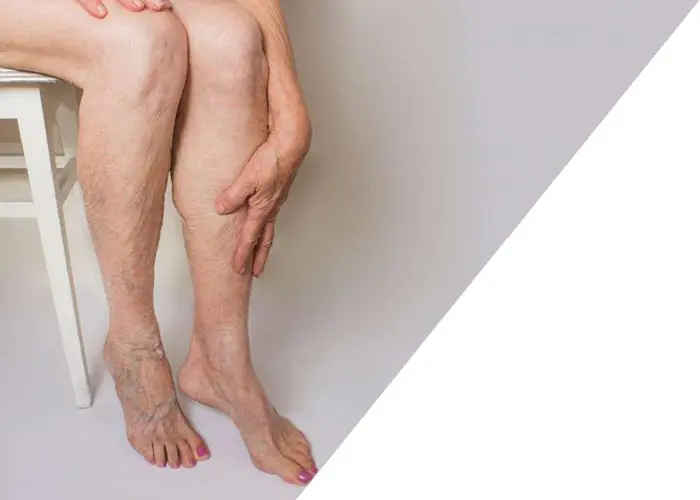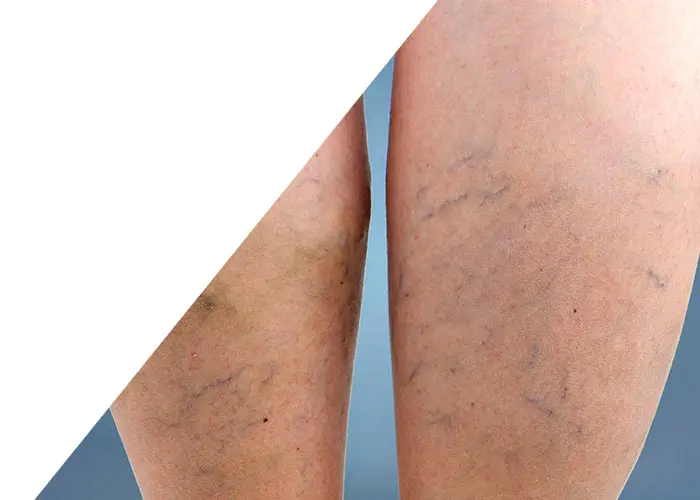Non-Surgical Varicose Treatment
Do not be late to make an appointment if your varicose veins and spider veins reduce your quality of life with uncomfortable symptoms such as pain and cramps.
- How to Diagnose Varicose Veins?
How to Treat Varicose Veins?
How to Treat Varicose Veins correctly?
Frequently Asked Questions

How to Diagnose Varicose Veins?
The patient who applied to the physician with the complaint of varicose vein should be subject to a detailed physical examination.
Following this physical examination, color Doppler ultrasound is used for assessment. With this examination method, the structure of veins is revealed, varicose veins are identified and it is investigated if there is clotting in the vessels. The patient does not experience any pain or discomfort during this examination. In cases where color Doppler ultrasound is not sufficient, venography which is an imaging method based on delivery of medicine into the vessel is applied.


How to Treat Varicose Veins?
The problem of varicose veins initially presents with cosmetic problems. However, it may cause pain and numbness in the legs and even wounds in the varicose area if not treated. Therefore, patients with varicose veins should be checked and treated by a vascular surgeon.
There are both surgical and non-surgical methods for the treatment of this problem. Treatment and non-surgical methods can be listed as follows; Laser treatment, Radio frequency method, Foam therapy, Glue / adhesive treatment, Sclerotherapy.
The method to be used to treat the varicose vein problem is determined following a detailed examination of the patient.
How to Treat Varicose Veins?
Treatment of varicose veins must be personalized. There is a wide range of treatment options from classical surgical approach applied for many years to non-surgical approaches such as laser, radiofrequency and biological adhesive methods. A detailed history of the patient should be taken prior to the treatment and it should be learned what the complaints are and how long they are present. Examinations should be performed to determine whether the patient has hypertension, rheumatic disease, diabetes etc. and physical examination is performed. Then, an assessment should be made by using Doppler ultrasonography for treatment planning. Vessels are examined in details here. Early diagnosis and treatment of varicose veins are very important. Because if not treated, changes in the valves of the veins may become irreversible. The solution has been made easier thanks to the technological opportunities.

Who are the candidates for varicose veins? What are the risk factors?
Regardless of gender, varicose veins can be seen in everyone. Studies conducted have shown that half of the society has varicose vein problems. Varicose veins are most commonly seen in the following individuals:
- Females,
- In periods of hormonal changes such as pregnancy and menopause,
- Overweighted Individuals,
- Individuals sitting or standing for a long time,
- Those who wear too tight clothes or high heels,
- Elderly population,
- People with constipation problems.
What Are the Symptoms of Varicose Veins?
Symptoms of varicose veins are complaints that decreases the individuals’ quality of life. Although these complaints vary from person to person depending on the location and degree of varicose vein formation, it can be mainly listed as follows;
- Pain and cramps in the legs
- Sense of numbness
- Itching
- Enlargement of vessels
- Appearance of veins under the skin as bluish-green line
Is varicose vein stockings effective in treatment?
Varicose vein stocking ensures pressure regulation by putting pressure on the veins. It is one of the important measures that can be taken to prevent the disease progression.
Do varicose veins heal in time?
Varicose veins cannot heal by itself. Absolute treatment is required for the varicose vein as it is a disease caused by the impairment of the veins and valves in these veins.
What Are the Complications of Varicose Veins?
In the varicose vein problem, the veins are enlarged and bended. As a result of this, the blood flow slows down and the possibility of blood clotting increases. Serious problems such as thrombophlebitis, deep vein thrombosis or pulmonary embolism may be developed in patients with clotting problems. Furthermore, untreated progressive varicose veins eventually lead to wounds called venous ulcers on the skin. The recovery of these wounds is a quite challenging and long process.
About Dr. Onur ÜSTÜNEL
He was born in 1983 in Kütahya. After successfully completed his six-year medical education in Başkent University Faculty of Medicine, he graduated in 2007. Under the obligatory service, he started his career as a general practitioner in the Seyitömer Healthcare Center in Kütahya. He continued his specialization training at Hacettepe University Faculty of Medicine, Department of Cardiovascular Surgery following his success in the TUS exam (Specialty Exam in Medicine). Following the current developments in his field, Op. Dr. Onur Üstünel proceed in his career at the Department of Cardiovascular Surgery in University of Bologna School of Medicine Sant’Orsola-Malpighi Hospital together with the famous cardiovascular surgeons Prof. Dr. Roberta Di Bartalemeo and Prof. Dr. Davide Pacini. In 2014 and 2015, he continued his academic development by participating in the EACTS (European Association of Assosication of Cardiothoracic Surgery) vocational training courses in Windsor, England. After completing his specialty training, he worked in Siirt State Hospital as part of the obligatory service and then started to work at Ankara Numune Training and Research Hospital. Moving to İzmir in later years, Dr. Onur Üstünel continued his career in Bozyaka Training and Research Hospital. Finally, he started the operations and services of his department at Bornova Türkan Özilhan State Hospital. To offer a better quality and boutique service to his patients, he opened his own clinic here. He currently provide service to his patients in Alsancak. He is also a member of European Association of Cardiothoracic Surgery (EACTS), Turkish Society of Cardiovascular Surgery (TKDCD), National Society of Vascular Surgery and European Society for Vascular Surgery, and İzmir Chamber of Medicine. Onur Üstünel is interested in tennis as a hobby and is a member of İzmir Tennis Club.
